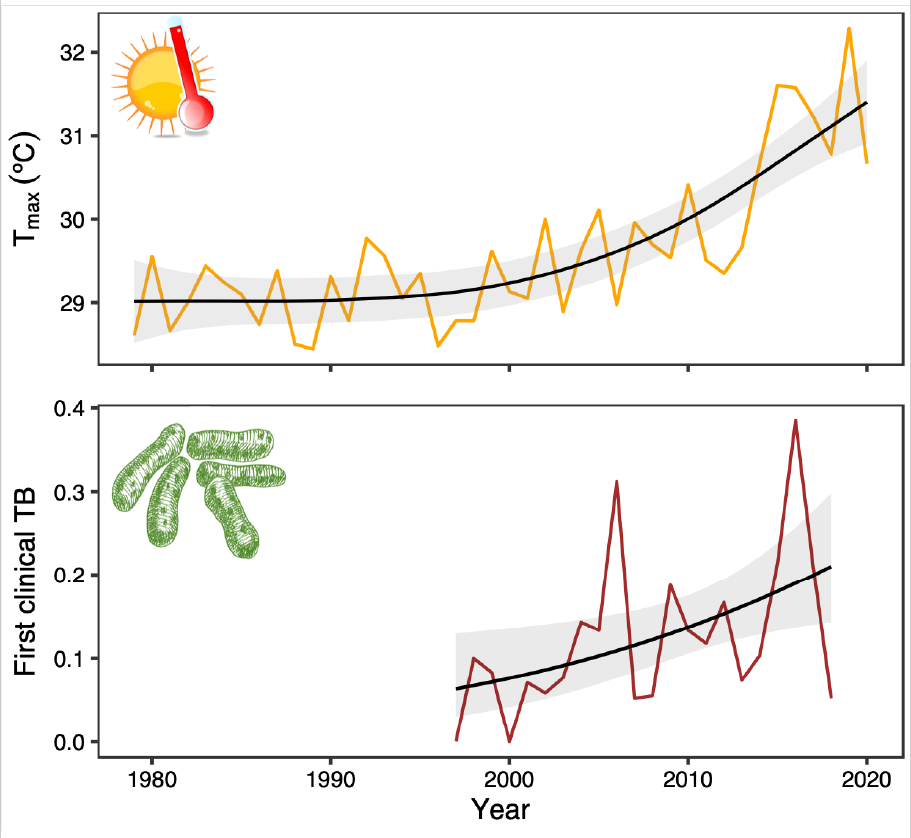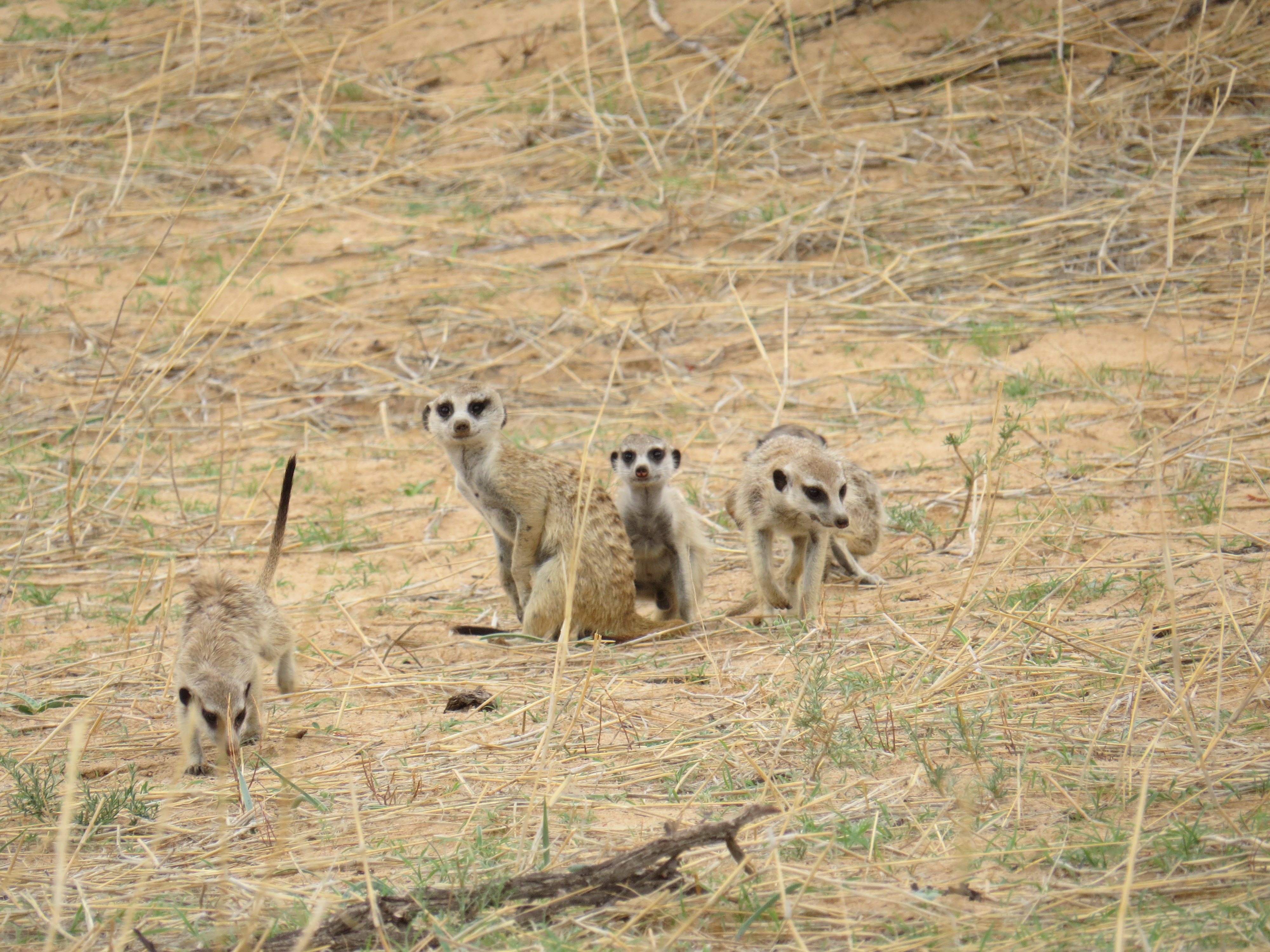A scientific team led by a researcher at the Doñana Biological Station – CSIC, in collaboration with the Kalahari Meerkat Project, shows that ongoing climate change can increase disease outbreaks. The study has been carried out with 22 years of weekly demographic data from more than 1000 female and 1000 male wild meerkats (Suricata suricatta) in the Kalahari Desert.
An international team of researchers including the Doñana Biological Station – CSIC and the Kalahari Meerkat Project has demonstrated that increases in temperature extremes worsen the impact of an endemic disease in a social mammal population. This study used exceptionally detailed data on survival, reproduction, and dispersal of a meerkat population to relate tuberculosis outbreaks to climatic extremes. The researchers found that prolonged periods of extreme temperatures, which are becoming more frequent in the Kalahari, increase the chances of TB outbreaks by increasing physiological stress and dispersal of males, which are the main carriers of disease.
The team used 22 years of weekly demographic data from more than 1000 female and 1000 male meerkats (Suricata suricatta) to carry out this study. This population was studied in the Kalahari Desert, where temperatures have risen steadily due to ongoing climate change and are projected to increase further under IPCC climate change scenarios. "Tuberculosis is an endemic disease in meerkats and numerous outbreaks, which are fatal to individuals, have been observed", explain Maria Paniw, lead author and a researcher at the Doñana Biological Station – CSIC. "Tuberculosis is a disease that effects a wide range of species, including humans. Although the patterns of disease outbreaks will obviously differ between species, our study shows that climate change can potentially worsen tuberculosis outbreaks."
With this data, the research team modelled the relationship between climate, demography, and disease to project persistence of meerkat groups under interactions between weather extremes and tuberculosis outbreaks. The results showed that if the frequency of extremely hot years increased, tuberculosis outbreaks within groups also increased. Temperature extremes increase physiological stress as well as the dispersal of males. In most mammals, males are the ones that move the most and they are therefore the ones that spread diseases the most. Climate change makes male dispersal more likely, which then leads to worsen the outbreak.

Stressful environmental conditions, such as temperature extremes, can increase disease outbreaks, but such increases have wide reaching consequences beyond the individuals affected – they destabilize the entire population by affecting primarily large social groups that keep the population stable. When assessing risks of group failure, it is vital to account for disease dynamics, otherwise group extinction under climate change is underestimated by > 50 %. In addition, this situation can have bad consequences for many species that rely on meerkats as food.
The consequences of disease outbreaks under climate change could be similar in the Iberian Peninsula
"This is a bit similar to what is going on with rabbits (which also experience periodic disease outbreaks and population collapses) and their predators in the Iberian Peninsula. We want to carry out a similar research in these systems. We can see that climate change can very quickly diminish biodiversity with substantial effects for ecosystem services that are important for humans as well", explains Maria Paniw.
Predicting how biodiversity will respond to climate change and how climate change alters interactions among species is very important to mitigate risks. This study highlights the importance of understanding parasite-host interactions and provides the tools to assess and forecast how these interactions will change as a consequence of climate change.
"In many people's eyes, climate change is a slow process, with small-scale effects that gradually accumulate. Maybe implicit is then the assumptions that we can adapt or have time to mitigate. But synergistic climate-disease effects on survival and reproduction may rapidly intensify climate-change impacts in natural populations and lead to group extinctions, which puts many other species that depend on them at risk", concludes the researcher.
Reference:
Maria Paniw, Chris Duncan, Frank Groenewoud, Julia A. Drewe, Marta Manser, Arpat Ozgul, Tim Clutton-Brock. Higher temperature extremes exacerbate negative disease effects in a social mammal. Nature Climate Change. https://www.nature.com/articles/s41558-022-01284-x
https://www.nature.com/articles/s41558-022-01284-x


